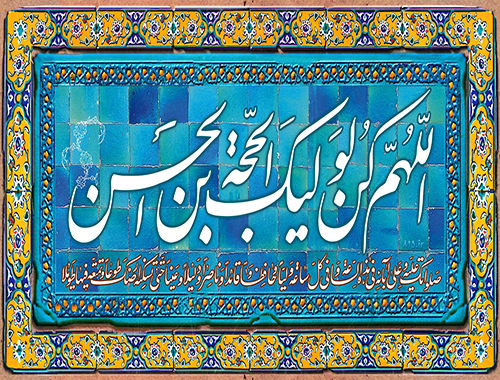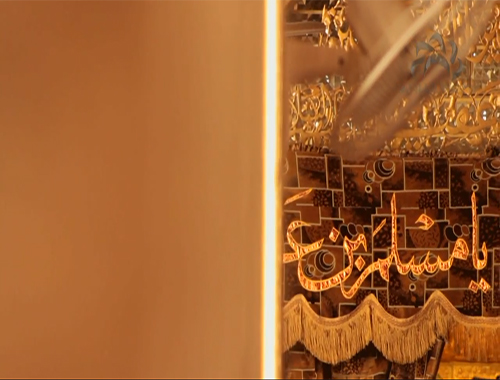Repenting for Qaâ€af
- Details
- Hits: 2486
Repenting for Qaaf
One who accuses a Muslim of adultery or sodomy should know that qazaf or false accusation is a sin that trespasses upon the right of man as well as the right of Allah (S.w.T.). As far as the human rights are concerned, the one who is falsely accused can take the accuser to the Qazi. If qazaf is proved by the confession of the accuser or by the testimony of two just witnesses who testify having heard the accuser making the false allegation, the legal sentence is executed. It is Wajib for the person who has committed qazaf to submit himself to the accused for trial. However, he can request the one he has falsely accused to forgive him and must try his best to do so. If he is condoned, he escapes punishment. But if he is not forgiven and nor is the sentence carried out, and the falsely accused dies, the right of having the penalty executed is transferred to the legal heirs of the falsely accused. Now it is Wajib upon the one guilty of qazaf either to surrender himself to the heirs so that he may be taken to a Qazi or he could ask for their forgiveness. If the heirs of the deceased forgive, he is saved from punishment.
SamÄ says: “I asked Imam Ja’far as-Sadiq (a.s.) regarding the person who commits qazaf but is forgiven by the one whom he accused falsely. If later, this person regrets having forgiven and wishes that the accuser be punished, can the punishment for qazaf be executed now?”
Imam (a.s.) replied;
“No penalty can be imposed upon him after being respited.”
SamÄ further enquired,
“What if the man says, “O son of a fornicatress.” And the one who is falsely accused condones him but leaves the matter to Allah?” Imam (a.s.) replied;
“If his mother is alive, the son does not have the right of forgiving the accuser. His mother has the right to forgive. She can exercise her right whenever she wants. If his mother has died, only then does he have the right to forgive.”
(Wasa’il ul-Shia)
It is Wajib upon the accuser, that after he has received the penalty or after he has been condoned by the one whom he falsely accused that he must publicly announce that whatever he has uttered is absolutely false. For example, he should say, “I had accused this person of fornication. It was a false accusation.” His announcement should be to the extent that those who have heard the false accusation must hear his confession too.
In an authentic report Ibn Sinan asked Imam Ja’far as-Sadiq (a.s.), “If a person makes a false allegation and undergoes the Islamic punishment and also repents. Can his evidence be accepted in future?” Imam replied,
“If he repents and his repentance consist of taking back the words he has uttered and confesses before the Imam (a.s.) and the Muslims to have uttered a lie... Then it is incumbent upon the Imam to accept his evidence and consider him just.”
The book al-KÄfi and Al-TahzÄ«b contain other reports concerning the same issue. If the accuser has made a false accusation, it is obvious that to falsify his accusation is a must. But there may be a situation where the accuser has really witnessed the act of adultery and sodomy but the crime is not proved due to lack of four witnesses and as a result he becomes liable for penalty. In this case too, he has to falsify his statement.
Since adultery or sodomy could not be established according to the stipulation laid down by Islam, from the point of view of Shari’a, his accusation is false. So although he had witnessed the crime, it is appropriate on his part to falsify his statement. This he should do with the clear intention that he is submitting to the laws of Islam.
This is in consonance with the following verse:
“Why did they not bring the four witnesses of it? But as they have not brought they are liars before Allah.”
(Surah an-NÅ«r 24:13)
The Shaykh writes in the book ‘Nihaya’ that a person who is guilty of qazaf should repent by publicly announcing that the accusation he had made is untrue, and that he had uttered a lie. He should do this at the same place where he had made the accusation. In this way all those who had heard a Muslim being denounced will now be aware of its falsehood and there will be no misunderstanding in their minds about his good character.
A person guilty of qazaf transgresses Allah (S.w.T.)’s right by disobeying a Divine command. Allah (S.w.T.) has strictly prohibited qazaf and a person guilty of it is deserving of the punishment of the hereafter. But if the offender repents sincerely and reforms himself, Allah (S.w.T.) is most Forgiving and most Merciful.
“Except those who repent after this and act aright, for surely Allah is Forgiving and Merciful.”
(Surah an-NÅ«r 24:5)
Sincere repentance reforms a person. He will either make peace with the person whom he had earlier maligned, or he will confess his guilt and falsify his accusation before a Qazi. After this he is no longer a transgressor or a liar according to Shari’a. He is now an adil (just man) whose evidence is acceptable. Beyond this, the experience of being guilty of qazaf and repenting sincerely by going through the humiliation of acknowledging it in public, brings about a deep-rooted transformation in the person’s character. He is now inclined toward virtue and piety and strives for spiritual upliftment.
The Shaykh says in the book “Mabsut”: “After repentance, only good deeds should be seen in that man.”
One who hears the accuser is obliged to advise him to refrain from slandering and even to reprimand him.











